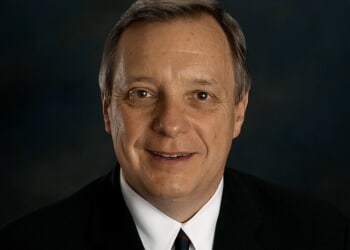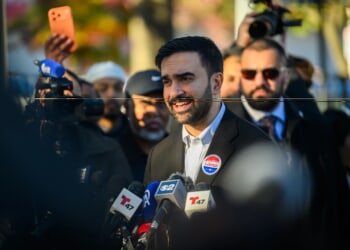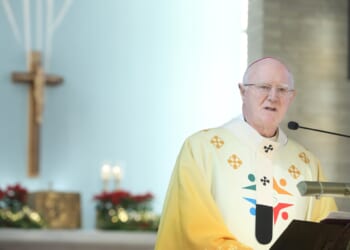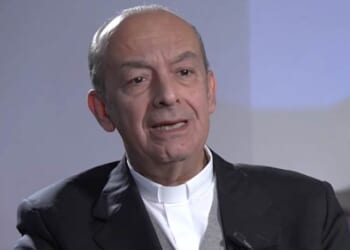Lord Ashcroft KCMG PC is an international businessman, philanthropist, author and pollster. For more information on his work, visit lordashcroft.com.
For years we have been told that Europe must remain united in the face of Russian aggression.
Nowhere does this message resonate more powerfully than in Eastern Europe, and nowhere more urgently than in Poland, where recent violations of NATO airspace have laid bare the stakes.
“Divided we fall” was the theme of this year’s Warsaw Security Forum, its 12th edition, which I attended over the past two days.
It was a timely slogan.
Poland today is the spearhead of NATO’s eastern flank, leading on rearmament within both the Alliance and the European Union. Warsaw has announced plans to spend 5 per cent of GDP on defence next year – a level still unimaginable for most European partners. It has become one of the largest buyers of American military hardware and is now turning to South Korea as well. None of this surprises Poles, who live with Russian aggression on their doorstep and whose airspace is routinely violated by Russian drones.
For many in Europe Poland’s 5 per cent defence budget may seem unachievable. Yet Russia is devoting 10 per cent of its GDP to waging war on Ukraine and harassing European allies. Ukraine, in turn, has been forced to commit 25 per cent of its entire national budget to defence.
In that light, Poland’s commitment looks less like luxury and more like realism. Crucially, the urgency is no longer confined to Eastern Europe. France was a partner nation of this year’s Forum; Germany sent both its Defence and Foreign Ministers alongside a large parliamentary delegation. The United Kingdom, though less visible, was still represented. The message was unmistakable: this is not a regional crisis, but a European one.
Dalia Grybauskaitė, the formidable former President of Lithuania, captured the mood when she told a panel: “We have failed in deterrence. Now we must ensure our defence.”
Her blunt words were echoed by discussions throughout the Forum, particularly in the wake of recent Russian air incursions into Poland, Estonia, Denmark, and beyond. Europe’s problem is not simply speed of response but efficiency. Scrambling fighter jets worth tens of millions of pounds to destroy drones that cost only a few thousand is not a sustainable strategy. The consensus was clear: we must learn from Ukraine, which has built the most combat-ready and combat-tested army in Europe – and perhaps the world.
The central lesson from Ukraine is adaptability. War today demands agility, and Kyiv has been forced to adapt its systems again and again. Its innovation cycle runs at astonishing speed – often 15 to 20 days from problem to solution. The defeat of Russia’s Black Sea Fleet by Ukrainian unmanned systems was cited repeatedly as proof of how quickly and effectively Ukraine can innovate.
Europe is strengthening its defences, but it must go much further. That means joint production with Ukraine. No laboratory can match the Ukrainian battlefield for testing new technologies. No partner is more experienced in countering Russian aggression, both on the front lines and in the hybrid space of disinformation, sabotage, and foreign interference.
Moldova’s recent resilience was rightly celebrated in Warsaw. Despite heavy Russian pressure during its elections, the pro-European party of President Maia Sandu secured a majority, reinforcing the country’s path towards Europe and bolstering security on the continent’s south-western flank. This shows that Moscow’s tools of influence can be resisted but only with vigilance and support.
The Forum also acknowledged the wider geopolitical picture. Poland’s Foreign Minister, Radoslaw Sikorski, argued forcefully that only one outside power has the leverage to bring about a ceasefire in Ukraine – and it is not Europe, nor even the United States. It is China. Ukraine’s own foreign minister, Andriy Sybiha, remained cautiously optimistic, saying Kyiv hopes for a ceasefire “by the end of the year.” Whether or not such hopes are realistic, one point is undeniable: the West is moving too slowly. As I wrote after the Alaska summit some time ago, Europe must face Russian aggression on its own. Ukraine has shown what mobilisation looks like under existential threat – rebuilding its defence industry even while fighting for survival. Europe enjoys the luxury of time bought by Ukraine’s sacrifice. We cannot waste it.
This new phase of European history demands more than deterrence. It demands effective defence. That requires urgent, concrete steps to support Ukraine while strengthening our own security.
First, the EU must implement its 19th round of sanctions, targeting Russian banks and oil sales. After nearly four years of full-scale war, it is extraordinary that the West has not yet imposed secondary sanctions to choke off Russia’s ability to sustain its war machine.
Second, Europe must act decisively on frozen Russian assets. This is the most powerful lever it has. The assets should be seized and redirected to Ukraine’s defence. Discussions continue over whether to use them as collateral for loans or to offset reparations later, but the principle is simple – the aggressor must pay.
Momentum is building among European nations, but resistance remains. The choice is stark. Either we act now, while Ukraine still fights, or we risk facing a direct war on our own territory. Poland understands this urgency. Ukraine embodies it. The rest of Europe must finally embrace it.
Our continent cannot afford another failure of deterrence. Unity, resolve, and speed are now the only safeguards of peace.

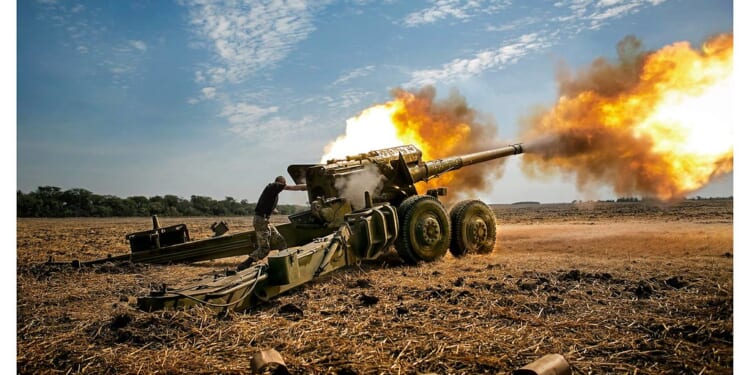






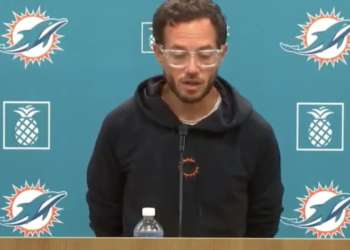
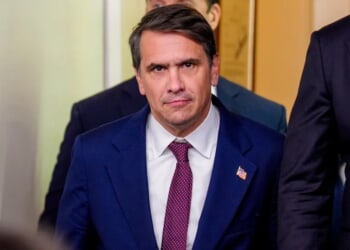
![Keith Ellison Caught Promising to Fight State Agencies for Somali Fraudsters [WATCH]](https://www.right2024.com/wp-content/uploads/2026/01/Keith-Ellison-Caught-Promising-to-Fight-State-Agencies-for-Somali-350x250.jpg)

